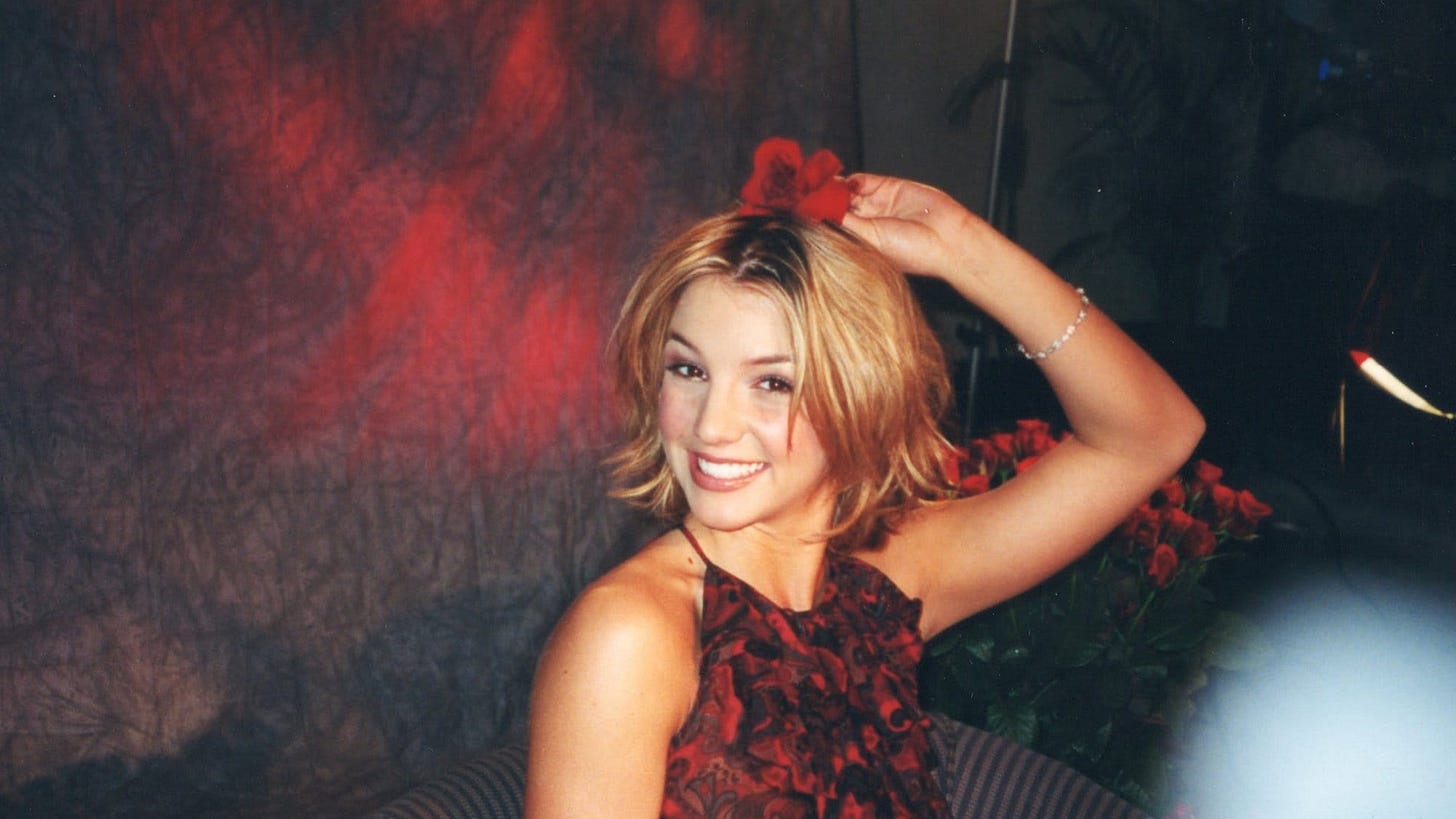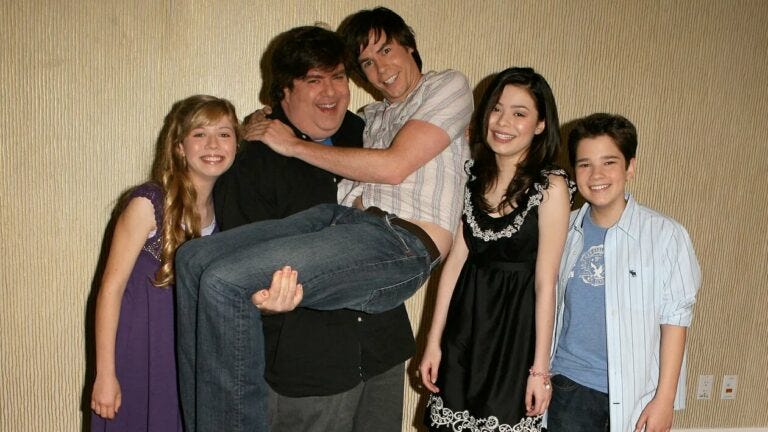For months, Chappell Roan's Tiny Desk concert was on my YouTube page. I had no idea who she was or what she sang. Eventually, I learned. Not because of her music1, but rather the entire online uproar around her. She publicly pushed back on how weird it is for people to constantly approach her and even stalk her. How unnatural it is, even when it's so widely accepted, for fans to feel entitled to artists' time and attention 24/7.
I know this has been discussed exhaustively. For a long time I didn't want to add to that, but I couldn't resist. The thing is, I saw many lucid analyses out there, many with related ideas, but none quite connecting them. So I thought I would give it a try.
You may not want to work even if you have the best job in the world
Sitting for interviews, walking the red carpet, taking photos with fans, doing photo-shoots, and all other activities related to being famous are still work. Although famous people make it look easy, they are not relaxed, being themselves and just having fun when they are doing it—they are working. It certainly takes effort and concentration.
Even if it's something many would die to do, it's still work.
For someone like Chappell, doing concerts and making music is what we understand as her main job. Being so, she is more than entitled to take a break from it. She can stop doing it whenever she wants. To go on strike, if you'd like.
But we hate strikers. We don't like people who "don't want to work". We say they are entitled. We get angry at them for making others lose money and time. The main discourse is always against workers when they push against their conditions. Why would it be different for a young singer?
But artists push back against imposed work all the time. Britney walked away in Las Vegas, Chappell cancelled shows, Rihanna will not make new music, and before them so many said no to what fame asked them to do: Kurt Cobain, Sinaid O’Connor, Nina Simone…Many times, to devastating ends.
The same happens in other creative industries. Writer Sally Rooney despite her enormous success, will not give interviews longer than 45 minutes and doesn't want her books adapted for TV or movies ever again. She is called entitled, unapproachable, and ungrateful, just like Chappell. Their crime is refusing to do what they don't want to do, and pushing back on how the industry and the public refuse to separate their own personas from what they create.
The artist as a product
Another reason there's so much backlash when an artist refuses to behave as expected is because actors, pop stars and celebrities are perfect vessels to sell us stuff. The image they create should project authenticity but be bland and approachable enough to be used for any brand. They should be relatable, but still aspirational.
When someone like Chappell reminds everyone in her just-woken-up-face: “Hey, I'm a human too. How would you feel if it was you?”, it breaks this image. She becomes a normal person. It shatters the illusion.
Also, when she refuses to take brand deals or let others bully her, she sends a message to those who want to invest in her as a product. She stops being an ideal vessel for a brand. She is not demure or feigning likability. She is not buying into the whole idea of turning herself into a commodity.
She wishes people would know her for her music and only engage with her fake (drag) persona. She wants work to be work and her personal life to be personal. In other words, she desires a life-work balance just like everyone else. But that's not how fame works. We want famous people's whole lives and thoughts. Complete access whenever we feel like it.
Money and fame
How could prince Harry chose not to be a prince anymore? How can Sally Rooney not want her book turned into a Netflix TV show? How can Chappell refuse brand deals?
In a world where fame and money seem to be the only thing that matters, we struggle to understand someone taking stances that will cost them either. It has been sold to us that those are the things we should aspire to the most. How can someone willingly turn them down?
A whole system depends on us aiming for more money and accolades. When someone from the top shows that it's not all it is cracked up to be, it doesn't sit well with most people. Even with other famous people who probably also want a better relationship with fame themselves.
But the reality is that being at this level of fame (and money) brings many problems. It is constant work and it definitely takes a toll on their mental health, otherwise how to explain so many suicides and overdoses?
Many have suffered deeply in the public eye from fame and its pressures, like singer Amy Winehouse. Some explicitly tell us that money and fame are not all that great, like rapper Kendrick Lamar and actor Jim Carrey. But there aren't many people who stand up for themselves, especially in a rising career, and that's why everyone was so taken by Chapelle Roan's attitude.
Can we do it differently?
Even though we have always been curious, previously, authors, actors, and musicians were much more isolated from the public. Social media gave us direct access to their personal lives and thoughts. The blend between what they make and their lives is much more indistinguishable.
The fact that we create para-social relationships with famous people, although effective for selling products, makes it hard for everyone to distinguish between what the artists create and who they are. Even if it's a relationship, some fans believe they deserve the celebrity's full attention, and this can be toxic.
We have to remember that even if we are loyal fans, their personal lives don't belong to us. They don't own us anything else, especially on their free time. What they offer is their work and we can engage and pay for it or not. Even when they offer pieces of their personal lives, like Taylor Swift does, it's always calculated. It's always work.
The better we separate those two things, the healthier our own relationship with work will be as well. Free time is free time, work is work. Artists' work is their performance and products. Other than that, they should be allowed to say no.
And even if they earn a lot of money and seem to live glamorous lives, they are still workers in the creative field. Others make much more money from their passion and creativity than they do. They are not fully in control of what they create and whole industries depend on their work.
They can say no to the work itself if it's not serving them. We can and should sympathize with all workers when they protest against their work conditions, even the rich and famous.
Intermezzo by Sally Rooney
Speaking of Sally Rooney, I'm just finished her last book and it's definitely worth reading. It explores family relationships and how they shape how we view the world and how we relate to others, in general. Through three narrators, brothers Peter and Ivan and Ivan’s new love interest Margaret, Rooney writes about relationships filled with grief and power dynamics.
Framing Britney Spears (2021)
This NY Times documentary added a lot to the movement to free Britney Spears from her conservatorship. It shows how fame took a toll on Britney's mental health when she was just a teenager and young adult. She was continuously mistreated by the press, fans and her family. It's hard to watch this and not feel digusted and guilty for what happened to her.
Quiet on the Set (HBO Max)
Quiet on the Set explores how toxic the environment was on Nickelodean children's shows production in the 90s and 2000s. Child actors were overworked, abused and ridiculed daily. The whole crew, from writers to make-up artists, was harassed and lived through some terrible years on the hands of producer and show runner Dan Schneider.
Later I heard The Rise and Fall of a Midwest Princess and it's catchy and addictive as all good pop is. I won't be surprised when it features my Spotify's 2024 Wrapped.














Great analysis - so thought-provoking, and on one of my favorite topics.
Great essay, Louisa. Yes, let's model what we want for all our lives. Let's support people who make the boundaries they need for themselves.